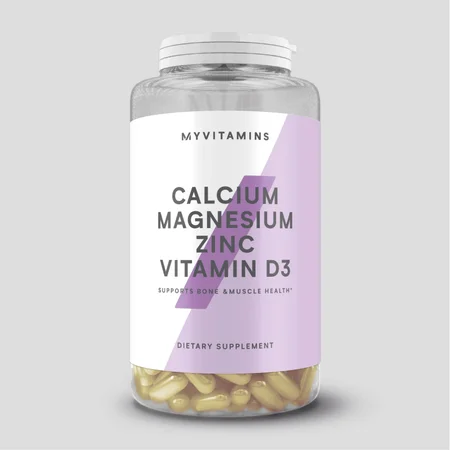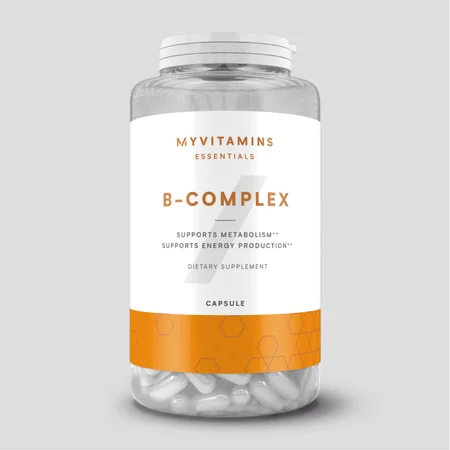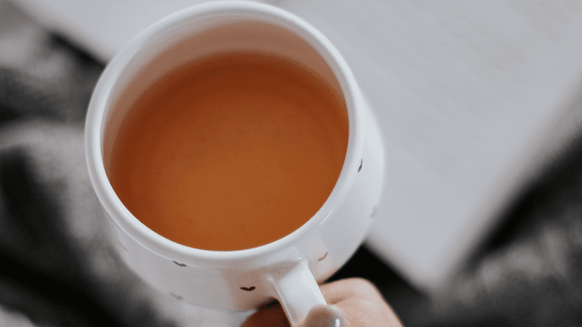
Sleep is important for so many reasons. While many of us are exhausted by the end of the day, it can still be a challenge to fall asleep easily and actually stay asleep through the night. Even with a healthy diet, good workout routine, and busy schedule, you could still end up counting sheep.
So if you've ditched your phone, had a bath, have fresh sheets and fluffy pillows and still can't fall asleep, what do you do?
That’s where sleep supplements come in, they could be your key to restful, revitalizing sleep, here’s why.

Why is sleep important?
You might think of recovery as the days between your high intensity workouts, stretching, and refueling, but sleep is the ultimate form of recovery. While we sleep, your body can focus on repairing and rebuilding muscle and fuel stores, while your mind consolidates memories and knowledge and helps to balance your hormones.
Here are some more reasons why quality sleep is important:
Good sleep can prevent heart related problems 2 Increased cognitive function and attention span4 Improved post workout recovery– quality sleep is key for energy conservation and nervous system recuperation, which are keys to recovery 4 Maximum effort and power – with interrupted sleep, both power and max perceived effort have been found to be lower5 Healthy metabolism and weight control – impaired blood sugar control and increased appetite and hunger have been linked with poor sleep5 Immune system health – when you are sick, your body requires extra sleep and rest to fight off infection; poor quality sleep or lack of sleep can make you more susceptible to illness6
Supplements to improve sleep and sleep quality
With so many obvious benefits of healthy sleep, you’re probably wondering how you can support your body in falling asleep quickly and staying in a deep, quality sleep.
The following supplements can support not just your best sleep, but your health overall. Several are linked to serotonin and melatonin, the relaxing hormones associated with sleep.
5HTP
5HTP is a precursor of serotonin, which is the “feel good” chemical that makes you feel relaxed and happy. Taking 5HTP has been associated with waking less easily at night and showing a long-term
Magnesium
B Vitamins
Phosphatidylserine
Phosphatidyl serine is a
Vitamin D
Vitamin D is a key component of the immune system and reducing inflammation, in addition to maintaining
Take Home Message
While it’s easy to assume that more sleep is the key for optimal health and recovery, research shows that quality sleep is a much more important consideration.
READ THESE NEXT:

10 Natural Food Sources High in Amino Acids
How you can get that protein power from your daily diet....

Top 10 Supplements For Energy To Fight Tiredness
Nutritionist recommends the best supps to give you a boost....

Claire is a Registered Dietitian through the Academy of Nutrition and Dietetics and a board-certified Health and Wellness Coach through the International Consortium for Health and Wellness Coaching. She has a Bachelor of Science in Biology and a Master’s degree in Clinical Dietetics and Nutrition from the University of Pittsburgh.
Talking and writing about food and fitness is at the heart of Claire’s ethos as she loves to use her experience to help others meet their health and wellness goals.
Claire is also a certified indoor cycling instructor and loves the mental and physical boost she gets from regular runs and yoga classes. When she’s not keeping fit herself, she’s cheering on her hometown’s sports teams in Pittsburgh, or cooking for her family in the kitchen.
Find out more about Claire’s experience here.
- Ellenbogen, J. M. (2005). Cognitive benefits of sleep and their loss due to sleep deprivation. Neurology, 64(7), E25-E27.
- Buysse, D. J., Grunstein, R., Horne, J., & Lavie, P. (2010). Can an improvement in sleep positively impact on health?. Sleep medicine reviews, 14(6), 405-410.
- Sanders M.H., Montserrat J.M., Farre R., Givelber R.J.: Positive pressure therapy: a perspective on evidence-based outcomes and methods of application. Proc Am Thorac Soc 2008; 5: pp. 161-172.
- Fullagar, H. H., Skorski, S., Duffield, R., Hammes, D., Coutts, A. J., & Meyer, T. (2015). Sleep and athletic performance: the effects of sleep loss on exercise performance, and physiological and cognitive responses to exercise. Sports medicine, 45(2), 161-186.
- Copinschi, G., Leproult, R., & Spiegel, K. (2014). The important role of sleep in metabolism. How Gut and Brain Control Metabolism, 42, 59-72.
- Ganz, F. D. (2012). Sleep and immune function. Critical care nurse, 32(2), e19-e25.
- Tsuno, N., Besset, A., & Ritchie, K. (2005). Sleep and depression. Journal of clinical psychiatry, 66(10), 1254-1269.
- Bruni, O., Ferri, R., Miano, S., & Verrillo, E. (2004). L-5-Hydroxytryptophan treatment of sleep terrors in children. European journal of pediatrics, 163(7), 402-407.
- Nielsen, F. H., Johnson, L. K., & Zeng, H. (2010). Magnesium supplementation improves indicators of low magnesium status and inflammatory stress in adults older than 51 years with poor quality sleep.
- Peuhkuri, K., Sihvola, N., & Korpela, R. (2012). Diet promotes sleep duration and quality. Nutrition research, 32(5), 309-319.
- Moré, M. I., Freitas, U., & Rutenberg, D. (2014). Positive effects of soy lecithin-derived phosphatidylserine plus phosphatidic acid on memory, cognition, daily functioning, and mood in elderly patients with Alzheimer’s disease and dementia. Advances in therapy, 31(12), 1247-1262
- McCarty, D. E., Chesson Jr, A. L., Jain, S. K., & Marino, A. A. (2014). The link between vitamin D metabolism and sleep medicine. Sleep medicineEllenbogen, J. M. (2005). Cognitive benefits of sleep and their loss due to sleep deprivation. Neurology, 64(7), E25-E27.










